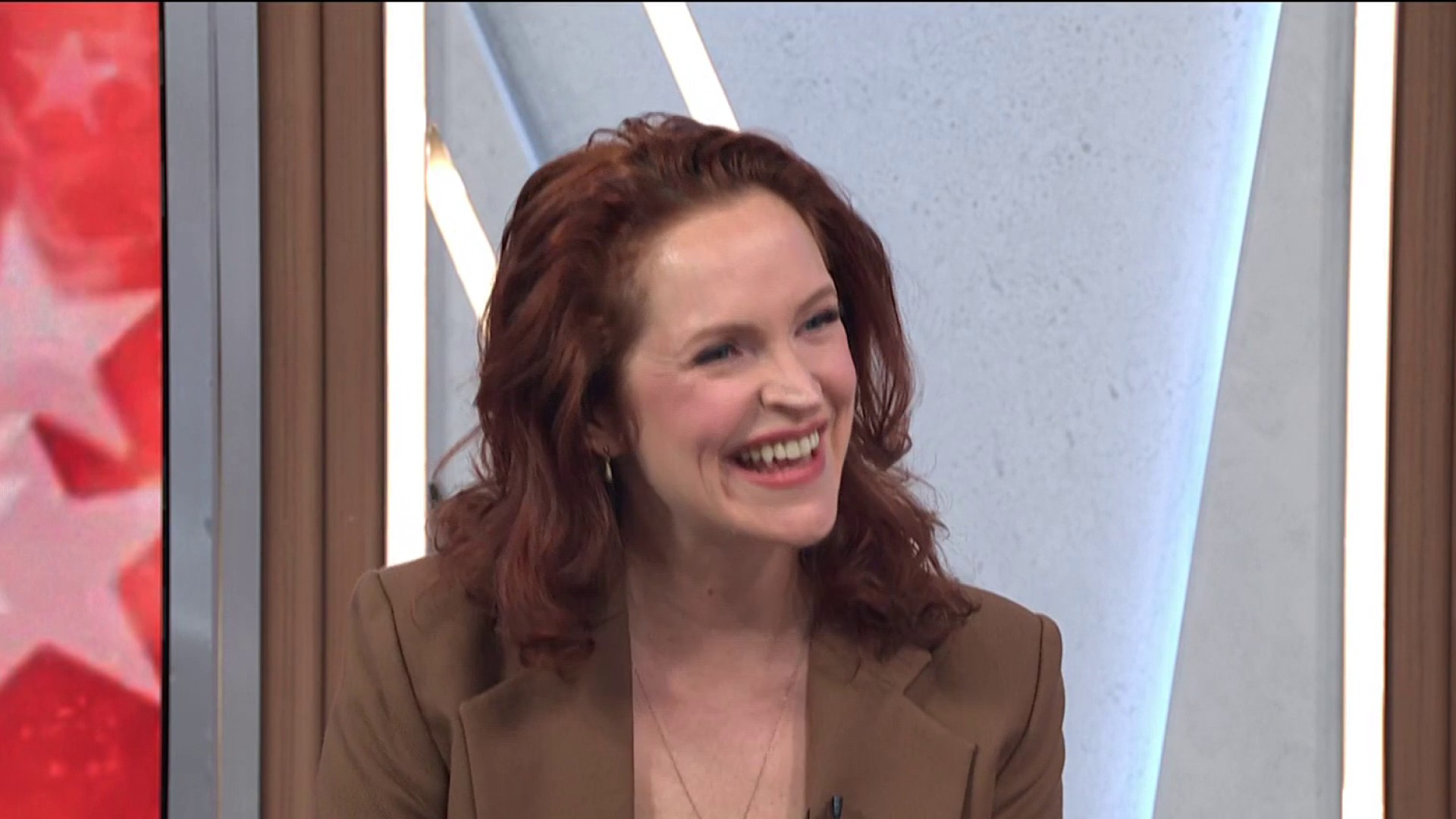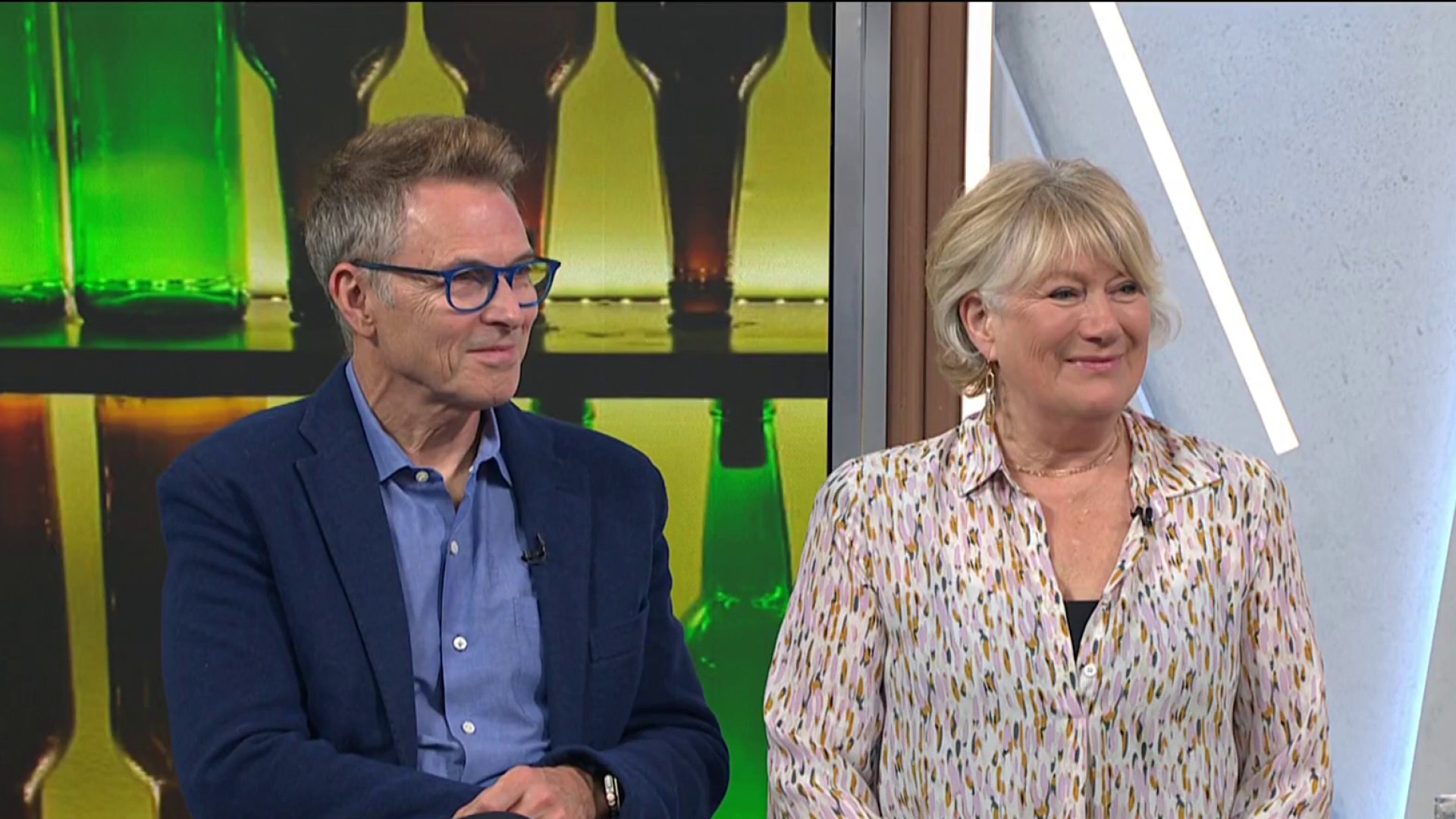At ease, armchair royalists. No need to wait for the return of HBO’s “Game of Thrones,” because one is playing out today at the Music Box Theater, where “King Charles III”—a “future history” drama about the ascension of the current Prince of Wales—has just opened.
Mike Bartlett’s provocative and absorbing drama imagines the first days of King Charles’s rule, after the death of Elizabeth. For its West End run, “King Charles III” won the 2015 Olivier Award for best new play. It’s transferred to Broadway with original star Tim Pigott-Smith in the title role.
“King Charles III” is charged, exciting theater, and its star is, to borrow a phrase, every inch a king.
Bartlett’s a clever and concise writer (last represented here Off-Broadway with “The Cockfight Play” and “Bull”), and three things are striking about “King Charles III” from the get-go.
First, it’s bracingly suspenseful for a story that hinges on a parliamentary bill. Next, there’s a misandrist streak here for the ages—one departs with the notion that royal males are oafish, and the U.K. is run by emboldened women.
Last, the story is told in iambic pentameter and modeled on a clutch of Shakespearean tragedies and histories. The language, though, is contemporary and straightforward: “But now I’ll rise to how things have to be. The queen is dead, long live the King. That’s me.”
Early in “King Charles III,” the prime minister (Adam James) arrives for the weekly meeting with the head of state—recall, we learned about these sessions last season with “The Audience.” The confab hits an obstacle quickly, though. A privacy law has been passed by Parliament that will curtail the press, but Charles doesn’t want to rubber-stamp the legislation.
Broadway
From there, “King Charles III” dives into the profound response by tax-paying countrymen to interference by a member of the royal family with their elected representatives. (We also get a nifty lesson in precedence—you’ll want go home and read up on William IV.)
Pigott-Smith has appeared on Broadway twice before (including 1999’s ’“The Iceman Cometh,” with Kevin Spacey), though he may be more easily recognized from a turn on “Downton Abbey.”
His is a fascinating performance, and you’ll likely sit there wondering: how can this man, who perhaps more than anyone in England has seen his life impacted by press-run-amok, be so concerned with media freedoms? Bartlett, via Charles, answers, saying an unrestricted press is “the way a just society should work.”
Were Pigott-Smith not so effective in conveying Charles’s convictions, this narrative would crumble like a day-old scone. As matters are, though, Charles’s heavy-handed actions feel wholly imaginable.
Lydia Wilson, as Kate, the Duchess of Cambridge, is a crafty Lady Macbeth, encouraging her milquetoast husband William (Oliver Chris) to challenge his father. Tafleen Steen does lovely work as a commoner who meets Harry (ginger-haired firecracker Richard Goulding) in a bar and fosters in him dreams of an ordinary existence.

Princess Diana (Sally Scott) appears in ghostly form, haunting her ex-husband and elder son, puffing up egos by suggesting actions that could make them “the greatest” of kings—scenes that flirted with being too corny, for my money.
Effective staging by director Rupert Goold (the set calls to mind “Wolf Hall”) whets my appetite for his coming work in “American Psycho.” “King Charles III” is a scandalous good time that, like “The Audience” and its cinematic predecessor, “The Queen,” leaves you questioning the relevancy of the monarchy.
Bartlett doesn’t seem to take a side, but he has a rip-roaring time exploring the territory.
“King Charles III,” through Jan. 31, 2016, at the Music Box Theatre, 239 W. 45th St. Tickets: $37-$149. Call 212-239-6200.



